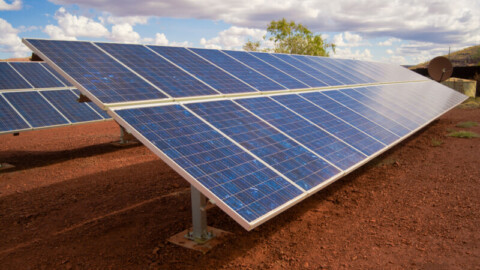The Australian Energy Regulator (AER) has released its Default Market Offer (DMO) draft Determination for consultation which includes a price safety net for tens of thousands of small businesses and up to 750,000 residential customers in New South Wales, South Australia and South East Queensland.
However, The Australian Energy Council’s Chief Executive, Sarah McNamara, said, the deaft is rushed and a sub-optimal response which does not address the cost issues in the energy market.
The DMO will cap prices for standing offers, acting as a price safety net for those who find pricing and discounts confusing, or who simply don’t have time to negotiate.
The DMO figure will also act as a reference price, requiring energy retailers to advertise their standing and market offers against a common price benchmark.
The AER’s draft Determination will deliver real savings to customers on standing offers:
- Up to $174 for customers on a flat rate tariff
- Up to $218 for residential customers on a controlled load tariff
- Up to $937 for small business customers on a flat rate tariff
The DMO and reference price responds to recommendations made by the Australian Competition and Consumer Commission (ACCC), and will prevent energy companies from slugging their customers with excessive standing offer rates and benefitting from the confusion created by misleading discounts.
The Federal Government has also released for public consultation the draft Electricity Retail Code to implement the DMO and reference price.
The Code will provide the AER with the power to set the DMO and reference price for households and small businesses in New South Wales, South Australia and South East Queensland.
The Electricity Retail Code strikes the right balance by protecting customers without stifling competition or penalising those who shop around.
The DMO will not apply in Victoria, after it followed the Federal Government’s lead and announced they will implement their own default market offer. But we have put the Victorian Government on notice: Victorian consumers must be better off under Victoria’s default price, or the Commonwealth with take further action to ensure Victorian electricity customers are put first.
“For the 86 per cent of customers who are already on a cheaper market deal, today’s announcement will not lower prices. However, the Government’s own adviser, the AEMC, has warned of a likely increase in the price of some of the cheap deals in the market in the future,” Ms McNamara said.
“When governments choose to set prices in any market serious consequences can occur. Federally imposed price regulation also flies in the face of the agreement reached at the last COAG Energy Council meeting. Price regulation is usually a decision made at a State level. In a complex market, we need to be careful that the majority of customers will benefit from a reform and that vulnerable customers are protected. That work has not been done,” Ms McNamara said.
“We also know why energy prices are high. They are high because of cost pressures across the supply chain, and because we are an industry without a guiding policy framework. Price regulation cannot overcome those challenges.
“If the Government is keen to regulate prices in the energy market, we encourage it to take the time to do it properly, and with the cooperation of the tates so customers do not suffer detriment. We need time to prepare for this change and educate customers. This is a rushed and sub-optimal response which does not address the cost issues in the energy market.”
















